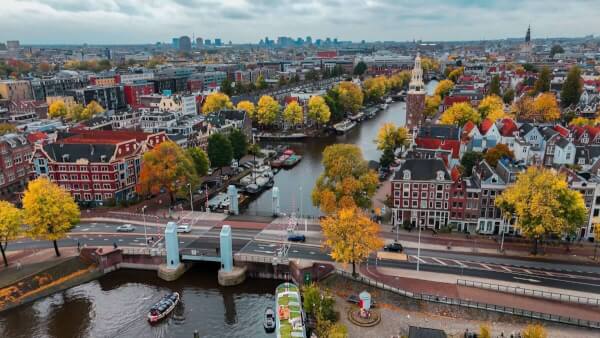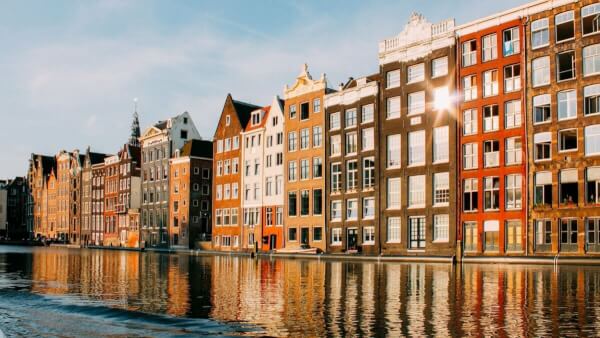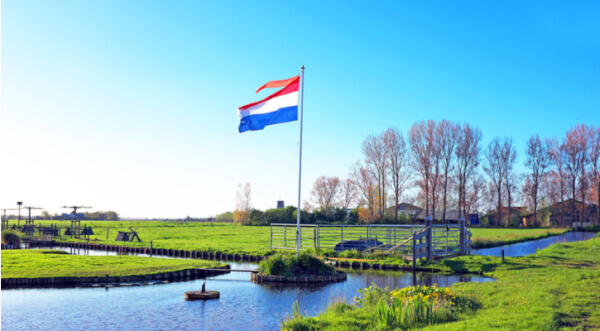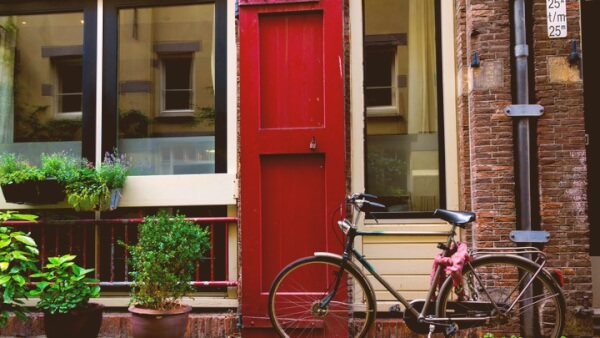Can I keep my Dutch bank account if I move abroad?
Can I keep my Dutch bank account if I move abroad? Find out everything you need to know here in our handy guide.

The Netherlands is known for its universal and excellent standard of healthcare and it’s regularly rated as one of the best healthcare systems in the world. This is excellent news for anyone looking to relocate permanently or visit.
This article gives a brief overview of healthcare stats in the Netherlands along with what you’ll need to know about mandatory health insurance, finding doctors and specialists, and dealing with emergencies.
Money in the Netherlands is denominated in the euro, which is written as EUR or €. Here are some quick facts on the healthcare system there:
It’s never easy to know exactly what your home currency is worth as the global exchange market is constantly changing. For up-to-date figures, though, you can always use an online currency converter to check your money’s current value.
At the time of writing, these are the, very approximate, figures you can expect to find:
The Netherlands has universal healthcare, but the government requires all adults living or working in the Netherlands to have basic insurance. The basic plan will cost € 100-120 out of pocket. If you’re employed, your employer will pay a small percentage towards medical coverage as well. Children under the age of 18 don’t pay for health insurance.
The basic plan covers the basic standard of care like visits to the GP and hospital. Some treatments may have an excess for which you need to pay a portion out of pocket. Many people also choose to get a higher level insurance coverage for an additional fee that compensates for other treatments not covered on the basic insurance package.
To give you a general idea of some costs you might run into, here are common costs for healthcare in the Netherlands:
| Healthcare Item | Average Cost in the Netherlands |
|---|---|
| Basic insurance plan | €100 |
| One-night hospital stay | €146 |
| Emergency room visit | €256 |
| Doctor’s office visit in normal office hours | €47 |
| Doctor’s visit outside of normal office hours | €92 |
When you go to the Netherlands, you might consider a Wise borderless multi-currency account to manage your health insurance fees. The borderless account helps you receive and organise your money without confusing fees and exchange rates, you just pay a small, fair charge when your money moves between currencies. You can hold and manage money in tens of different currencies and send money to over 50 countries.
The Netherlands has a universal healthcare system. It’s managed by the government and supplemented by private insurers. Anyone living or working in the Netherlands must obtain basic level health insurance (with or without additional coverage) from a Dutch provider.
The state offers mandatory insurance that is funded from the state and managed by private insurance companies. The insurance companies receive funding from a regulator’s fund. All primary care and long-term care services must be offered at a fixed price. It’s illegal for companies to refuse coverage for anyone or to impose punitive fees or conditions based on someone’s financial or health situation.
Insurance companies can supplement their required offerings with additional services. People with a lower income can apply for financial assistance for the basic healthcare or if they want supplemental services but can’t afford them.
These are the main steps you should take in order to get healthcare in the Netherlands:
You can contact emergency services by dialling 112 or going directly to the emergency department at your nearest hospital. In an emergency situation you do not need to be pre-registered at the hospital. If you’re signed up to a local doctor they may also have an out-of-hours number that you can contact for help. If you’re in Holland, you can call the Centrale Huisartsen Post (CHP) outside of regular hours to consult a doctor.
The Dutch have 3 types of hospitals: university hospitals, general hospitals, and teaching hospitals. Most of them are privately run. When on a routine visit to a hospital to see a specialist, patients will be asked for details to register before the treatment. The hospital will issue a patient ID card which you bring back with you on visits. The basic health insurance coverage will cover hospital care, though you may have to pay an excess fee depending on the treatment.
Once you have your health insurance, you should register with a local doctor, or huisarts in Dutch. Your local doctor plays an important role in healthcare in the Netherlands; they are the first stop to receive any type of medical treatment. Most doctors are well educated and will speak English.
You’ll need to register ahead of time to visit your local doctor. Many practices offer a telephone consultation hour to assist new patients. Not all practices will be taking new patients, but they may have a waiting list to join. You can find a list of local doctors by visiting the Town Hall, which should provide you with a community guide or by searching online on local Dutch sites like this one. The good news is that also, most health insurance companies will be able to offer you a list of family doctors who will take on new patients
You must be referred by your local doctor in order to see a specialist. Most specialists work in a hospital setting, and unfortunately you may experience a long wait period. The basic health insurance package will cover a visit to a specialist, but an excess fee may apply, depending on the treatment.
To move to the Netherlands permanently, you’ll need basic Dutch health insurance, even if you have private international health insurance from a non-Dutch company. The government tightly regulates the Dutch company plans and quality of the coverage. Everyone has the right to choose which provider they want, and insurers are required to cover everyone for a flat fee. There’s a mandatory deductible amount for Dutch health insurance, though, and this amount is set by the government. For 2017, for instance, this was €385, but the government reviews this amount each year and, if needed, changes it.
There are 2 types of health insurance coverage:
The government sets the standards for the basic health coverage. In 2017, this included:
Many of the services are likely to have out-of-pocket charges. The cost of basic Dutch medical insurance is around €100 - €120 per month. Monthly premiums with your provider are fixed for the calendar year.
You need to get insurance within 4 months of your arrival, but in order to do so you’ll need to register with your local council and get a citizen service number (BSN) first.
If you’re a tourist from an EU/EEA country and staying in the Netherlands for less than 12 months, you can use your European Health Insurance Card. Temporary visitors from outside the EU/EEA should arrange to have their own travel insurance or international health insurance while in the Netherlands.
You might find these medical terms useful when you are in the Netherlands:
| Medical term | Dutch translation |
|---|---|
| accident | ongeval |
| ambulance | ambulance |
| broken bone | gebroken bot |
| dentist | tandarts |
| family doctor | huisarts |
| emergency | noodgeval |
| heart attack | hartaanval |
| hospital | ziekenhuis |
| medical bill | medische rekening |
| medical insurance | medische verzekering |
| pharmacy | apotheek |
| prescription | recept |
| stroke | beroerte |
These links will be helpful to you when you relocate to the Netherlands:
If you’re moving to the Netherlands, healthcare is one area where you won’t have to worry. The system is world-class and affordable for all. This guide will help you find the care and coverage you need when you are there.
*Please see terms of use and product availability for your region or visit Wise fees and pricing for the most up to date pricing and fee information.
This publication is provided for general information purposes and does not constitute legal, tax or other professional advice from Wise Payments Limited or its subsidiaries and its affiliates, and it is not intended as a substitute for obtaining advice from a financial advisor or any other professional.
We make no representations, warranties or guarantees, whether expressed or implied, that the content in the publication is accurate, complete or up to date.

Can I keep my Dutch bank account if I move abroad? Find out everything you need to know here in our handy guide.

Everything you need to know about moving to Amsterdam from the UK. Read about visas, popular expat destinations, healthcare and more.

If you’re planning a trip to the stunning city of Amsterdam, you’ll definitely want to time it right for Amsterdam Pride 2023, one of the most unique LGBTQ+...

In the Netherlands, there are more than two weeks worth of national holidays each year. But some of those holidays are more important than others, and banks...

The Netherlands attracts large numbers of expats coming to work in the global companies based in Amsterdam, and in the many diplomatic institutions around the...

Amsterdam is home to large numbers of international companies, not to mention world class educational institutions. Which means professionals and students...